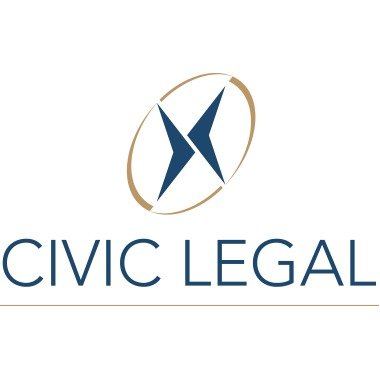Best Commercial Real Estate Lawyers in Perth
Share your needs with us, get contacted by law firms.
Free. Takes 2 min.
Free Guide to Hiring a Real Estate Lawyer
List of the best lawyers in Perth, Australia
About Commercial Real Estate Law in Perth, Australia
Commercial Real Estate Law in Perth, Australia, encompasses the legal aspects surrounding the sale, purchase, leasing, and development of commercial properties. Perth's robust economy, driven by industries like mining and technology, contributes to a dynamic market for commercial real estate. The legal framework governing these transactions involves multiple laws and regulations designed to ensure fair practices, compliance with zoning and environmental laws, and the protection of each party's rights. Understanding these laws is crucial for businesses seeking to establish or expand their presence in Perth.
Why You May Need a Lawyer
There are several situations in which individuals or businesses may require legal assistance with commercial real estate transactions in Perth:
- Negotiation and drafting of leases and sales contracts, ensuring they reflect your interests and comply with local laws.
- Handling disputes over property boundaries, tenant rights, or enforcement of contract terms.
- Navigating zoning laws, environmental regulations, or permit requirements for property development or changes in property use.
- Conducting due diligence to uncover any legal liabilities, encumbrances, or compliance issues associated with a property.
- Resolving issues related to property financing or mortgage arrangements.
Local Laws Overview
Commercial real estate transactions in Perth are governed by a variety of local and national laws:
- Transfer of Land Act 1893: Governs the transfer of land titles and interests.
- Strata Titles Act 1985: Relevant for properties involving strata or community titled buildings.
- Residential Tenancies Act 1987: While primarily for residential properties, it contains provisions that impact mixed-use developments.
- Environmental Protection Act 1986: Addresses environmental compliance issues that can arise during property transactions or developments.
- Local Government Act 1995: Pertains to planning and building regulations enforced by local councils.
Understanding these laws and their implications is essential for anyone involved in commercial real estate in Perth.
Frequently Asked Questions
What is a due diligence process in commercial real estate?
Due diligence is an investigative process that assesses the potential risks and benefits of a property transaction. It involves examining title deeds, existing leases, zoning, environmental conditions, and any legal obligations tied to the property.
What are the typical costs involved in a commercial property transaction?
Costs can include legal fees, stamp duty, property valuation fees, and government taxes. The exact amount can vary based on property value, location, and transaction complexity.
How can zoning laws affect my commercial property investment?
Zoning laws dictate how land can be used, which affects the potential business activities permissible on a property. Compliance is crucial for any intended property use or development.
What is the significance of a commercial lease?
A commercial lease is a legally binding agreement between a landlord and tenant, outlining terms such as rent, duration, and property use. It protects the rights and interests of both parties.
What should be considered when buying a commercial property?
Consider location, zoning restrictions, the property's condition, tenant profiles, potential for appreciation, and any outstanding legal obligations or liabilities.
How are disputes typically resolved in commercial real estate?
Disputes can be resolved through negotiation, mediation, arbitration, or litigation, depending on the nature of the conflict and the dispute resolution clauses in the contract.
What role does environmental law play in commercial real estate?
Environmental law can impact property transactions, especially if contamination or significant compliance issues are present. It dictates the responsibilities for mitigation and legal liabilities.
How does stamp duty affect my commercial property purchase?
Stamp duty is a tax levied on the transfer of property. The rate depends on the property's value and the state's regulations. It increases the overall transaction cost.
What is involved in a property settlement process?
Property settlement is the finalization of a property transaction. It involves the exchange of legal documents, payment of the purchase price, and transfer of title.
How can a lawyer assist with commercial property financing?
A lawyer can help negotiate terms with financial institutions, review loan agreements, and ensure all legal requirements are met to protect your financial interests.
Additional Resources
The following organizations and resources can provide additional assistance and information:
- Real Estate Institute of Western Australia (REIWA): Offers market insights and professional conduct guides.
- Department of Mines, Industry Regulation and Safety (DMIRS): Manages real estate licensing and consumer protection.
- Australian Property Institute (API): Provides education and standards for property professionals.
- Law Society of Western Australia: Can help in finding accredited commercial property lawyers.
Next Steps
If you need legal assistance in commercial real estate, consider the following steps:
- Identify your specific legal needs and goals.
- Research and select a qualified commercial real estate lawyer in Perth.
- Schedule a consultation to discuss your situation, providing all relevant information and documents.
- Partner with your lawyer to develop a legal strategy, addressing all potential challenges and opportunities.
Working with an experienced lawyer will provide guidance and protection throughout your commercial real estate transactions.
Lawzana helps you find the best lawyers and law firms in Perth through a curated and pre-screened list of qualified legal professionals. Our platform offers rankings and detailed profiles of attorneys and law firms, allowing you to compare based on practice areas, including Commercial Real Estate, experience, and client feedback.
Each profile includes a description of the firm's areas of practice, client reviews, team members and partners, year of establishment, spoken languages, office locations, contact information, social media presence, and any published articles or resources. Most firms on our platform speak English and are experienced in both local and international legal matters.
Get a quote from top-rated law firms in Perth, Australia — quickly, securely, and without unnecessary hassle.
Disclaimer:
The information provided on this page is for general informational purposes only and does not constitute legal advice. While we strive to ensure the accuracy and relevance of the content, legal information may change over time, and interpretations of the law can vary. You should always consult with a qualified legal professional for advice specific to your situation.
We disclaim all liability for actions taken or not taken based on the content of this page. If you believe any information is incorrect or outdated, please contact us, and we will review and update it where appropriate.















